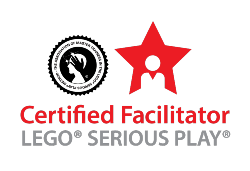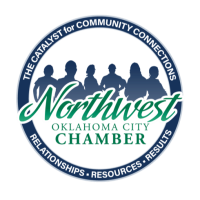
Association events are the biggest source of non-dues revenue and play a central role in building budgets so you can expand your capabilities. So strategically marketing these events is an essential investment in your association’s brand and bottom line.
Because events hold so much promise for associations, it’s important to treat them with the same strategic focus as other marketing efforts to make sure you make the most of every dollar earned. We’re here to walk you through event marketing and how you can use it to bring in the most revenue for your association.
What is Event Marketing, and why is it important?
Event marketing for associations involves bringing together members to bolster participation or the industry they support. These events can be in-person or online, ranging from annual conferences and virtual gatherings to workshops and seminars. Partnering with industry events or sponsoring partner events is also a great way to use events to raise non-dues revenue.
Event marketing is important for revenue generation, member loyalty and increasing awareness among potential members.
Attendees’ personal interaction with events fosters member retention and involvement while also attracting new members. Face-to-face interactions during events create a unique opportunity to build strong connections because attendees are not distracted by daily work or competing messaging.
Success in event marketing hinges on effective planning and organization before, during and after the event. Without proper promotion, potential attendees may not be aware or interested, which decreases the impact of your event for the folks who do come. The more members of the industry attend, the more powerful your event is for your attendees and exhibitors/sponsors, so it’s vitally important to plan and execute a strategic marketing plan for your events.
Identify your goals
Money doesn’t grow on trees, and no event will be a monetary success if you don’t first identify what a successful event means to your association. So, before diving into event marketing strategies, you must identify specific and measurable goals for your event.
Associations often start by determining the costs that need to be covered and setting revenue targets. This involves projecting registrations and add-on event ticket sales, the necessary attendee counts to cover costs and generate profit and potential sponsorship revenue.
It’s also worth writing down goals that are not related to revenue. For example, is the association unveiling a new product or service that needs awareness? Is there a group of potential members that the association isn’t serving but wants to, such as an international audience? Does the association need to be present and connected with larger industry events?
Your goals for engagement can impact where you should place your marketing efforts. If you know you want to target a new sector of your industry and gain a certain number of attendees from that sector, you can plan to target your marketing to reach those people.
Establish your market
Understanding your target market is foundational to successful event marketing. Whether it’s an annual member meeting or partnerships with other organizations, defining your audience helps develop event details such as location, timing and content. Educational topics, networking opportunities, pre-event activities, travel considerations and sponsor/exhibitor benefits stem from identifying the target market.
Start with identifying the goals you set that align with this pool of potential event attendees. What is your current market share? How many people usually attend your event vs. the potential pool of prospects? Do you know what segments of the industry you’re currently serving?
Establishing who already knows you and your event and who needs further outreach is a powerful way to strategize where and how you place your marketing efforts. If you want to learn more about establishing a target market, check out this article: The Power of a Brand: Your Market.
Identify your channels
Now that you’ve outlined your goals and target market, it’s time to pinpoint the most effective channels for your marketing messages. Leverage existing platforms your audience frequents, such as the association’s website, member emails, newsletters and social media. If you know the size of your current market share, identify where the people you aren’t reaching are most likely to see your message, and aim to show up in those places. Explore more outreach opportunities, including paid advertising, partnerships and industry publications.
Build your marketing and communications plan
With goals, target market and channels identified, construct a comprehensive marketing and communications plan for your event. Develop a communication schedule that aligns with major event deadlines, incorporating elements like hotel cutoff dates and early bird registration. Include diverse content such as speaker bios, program highlights, travel ideas and more. And be sure to utilize all of your channels and consider all of your market segments when generating content ideas.
The plan shouldn’t start and stop when the event begins, so include pre- and post-event content to drive and maintain excitement and engagement. Remember, content plays an important role throughout the event lifecycle—before, during and after.
Putting a well-thought-out marketing plan into practice ensures your association’s events not only meet their attendance goals but also leave a lasting impact on members, sponsors and the industry. After all, successful event marketing is the key to unlocking the full potential of your association’s efforts. Create a powerful event, hype it up in the marketing and leave your attendees and sponsors with a strong positive impact that makes them sign up year after year.
Conclusion
Events can fire up growth, revenue and lasting connections for associations. Strategic event marketing is the cornerstone to transforming gatherings into memorable experiences for existing and potential members. By identifying clear goals, understanding your target market, selecting effective channels and crafting a meticulous marketing plan, your association can unlock the full potential of its events.
Beyond the logistics and bottom line, successful event marketing reinforces the brand, builds member loyalty and positions the association as a vibrant force within its industry.
So, as you embark on your next event journey, remember that every well-executed marketing effort is not just an investment—it’s an opportunity to shape the narrative of your association and leave a lasting imprint on your members.
Is it time to level up and market your way to event success? If you don’t know where to begin or still have questions about successfully marketing your association’s event to raise more non-due revenue, increase member retention, build brand awareness and reach new members, we can help. Schedule your free consultation with Uptimize Marketing today.










